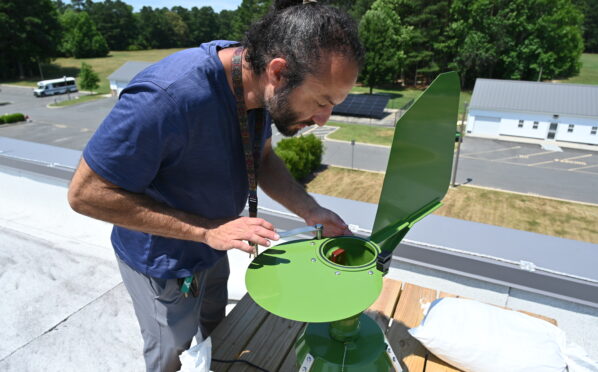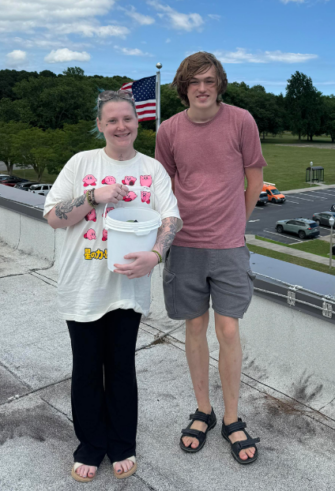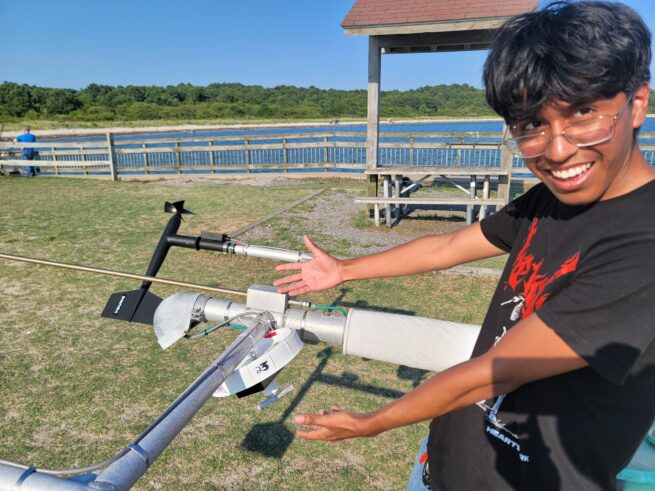
Foxworthy and Interns Research Allergens
10/08/2024
Summer Intern Program Increases Data on Local Efforts
Under the leadership and guidance of Biology Instructor Dr. Alex Foxworthy, Eastern Shore Community College has established a National Allergy Bureau (NAB) registered aerobiology station at ESCC. The NAB is the organization which maintains the network of sampling stations that provides data on daily pollen and mold spore levels in the United States, which are particularly relevant to those suffering from allergies.
Currently, there are only 50 active stations in the entire country, and the ESCC station is the only one in the state of Virginia. The current level of coverage is not sufficient to provide meaningful allergen data to people in most of the localities in the U.S.. Understanding what is in the air in our community is essential for people seeking to manage and treat their allergies.
Dr. Foxworthy stated that “surprisingly little is known regarding what biological substances are in the air, how these vary from location to location, and how these vary depending on different meteorological and geographical features. In addition to providing pollen and mold spore counts for our area, ESCC is also performing a number of scientific studies together with our students.”

Mark Niederhofer and Sarah Baugh have been investigating differences in mold and spore counts in different locations across the shore and at different altitudes. Another ESCC student, Jesus Lopez, has been working together with Luke Groff,a UVA graduate student working in Oyster at UVA’s Coastal Research Center, to further investigate these regional and altitudinal differences in Oyster and at the Chesapeake Bay Bridge Tunnel in Kiptopeake.

Mark Niederhofer elaborated on his summer internship on the project. “We’ve worked to record and process the allergens we’ve collected for the National Allergy Bureaubetween using rotorods, the Bukard Sampler, and the now the AI enabled automatic sampler made by PollenSense™.”
“The samplier uses AI to automatically detect and analyze air particles”, Foxworthy added. The ultimate goal would be to use such automated devices to expand the coverage of ESVA and eventually the whole state of Virginia. To this end, the first Virginia Community College System (VCCS) collaborator – Shalini (Shalini Upadhyaya) at J. Sargeant Reynolds Community College in Richmond- will be running similar experiments along with ESCC starting in the upcoming fall semester.
All together, these efforts will provide critical information about what is in the air in our communities and how this is changing over time. It also provides an opportunity for students to engage in real and meaningful scientific research both through internships and through regular classroom experiments.
If you have any questions regarding these efforts or ideas for collaboration, please feel free to reach out to Dr. Foxworthy at wfoxworthy@es.vccs.edu.